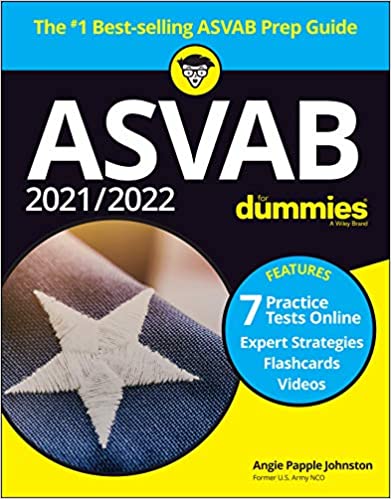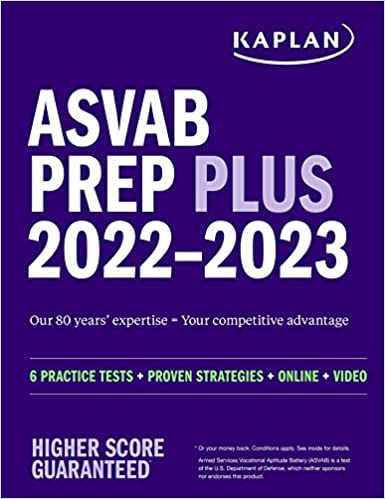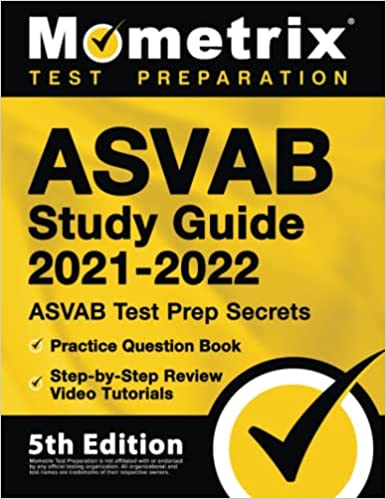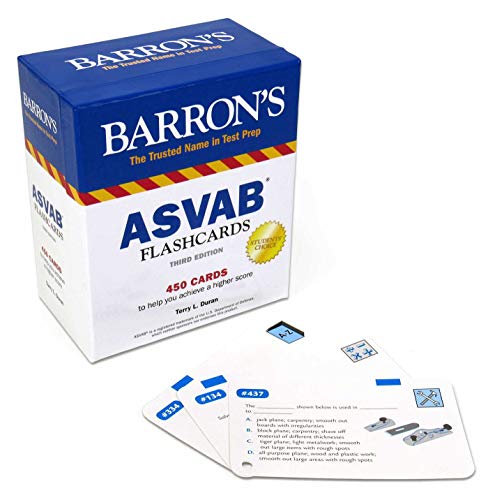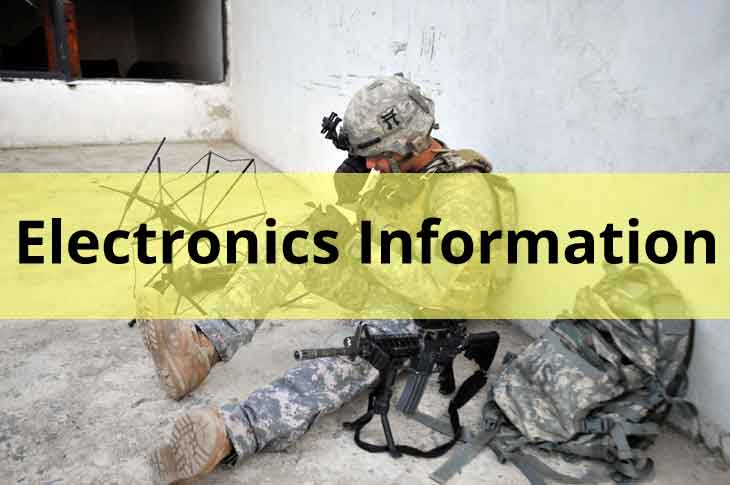
The Electronics Information test on the Armed Services Vocational Aptitude Battery covers electricity principles and electronic devices, including radios, televisions, magnets, motors, transistors and much, much more.
For this subtest, you will have 8 minutes to answer 16 questions when you take the CAT-ASVAB. You will 9 minutes to answer 20 questions on the pencil and paper version of the ASVAB test.
What’s Covered on the Test
The ASVAB Electronics Information test covers a variety of electrical-related subjects including:
The Principals of Electricity
You will need to know major electrical concepts, including how to use conductors, currents, circuits and insulators, among other things. You’ll also need to know various types of conductors and insulators and how effective they are. And that’s not all, you’ll also need to know different ways electricity can be used, the different types of electrical current and more.
Here are a couple of examples of the type of knowledge you’ll need to ace this subtest:
Circuits –
You’ll need to understand how a working circuit functions. Here’s an explanation of a very simple circuit: a battery is connected by a wire conductor to a lamp which is then connected back to the other side of the battery.
When the circuit switch is off the electrical current is not allowed to travel down the wire conductor from the battery to the lamp because there is an open space in the circuit. When the switch is flipped on, the space is closed and the current can flow down to the lamp and light the light bulb.
Resistance –
When it comes to a properly working circuit, the electrical current doesn’t just flow unimpeded.
In fact, resistance is often deliberately set up to regulate the electricity. Without resistance regulating the flow, the motors being powered by the electrical current would quickly overheat.
Transistors –
Transistors are semiconductors the control the flow of electricity in a circuit. A semiconductor by definition is something that conducts electricity poorly at low temperatures.
Transistors are usually made of silicon or germanium. They also can amplify a signal, hence transistor radios.
Here are some more facts about transistors:
- They are small
- They require little power
- They last a long time
- They don’t require a vacuum to operate
- The voltage output comes from the emitter
- The voltage input comes from the collector
So are you starting to understand what’s required? Let’s move on to some other things that are usually covered by questions on this subtest:
Electrical Terms
A number of questions on the Electronics Information subtest have to do with knowing common electrical terms and what they mean. For example, you should know the meanings of words like voltage, frequency, amperage, amperes, ohms, resistance and more.
Ohm’s Law
You should definitely have a good working knowledge of Ohm’s Law, which basically says that amperage=voltage/resistance. This law is a basic fundamental of the study of electricity and by having any two elements of the above equation a student can solve for the third. The equation is used in a number of electrical measurements and thus those providing electrical services must have a good understanding of it.
Electrical Symbols
Some ASVAB questions may include common electrical symbols so you should also be familiar with these.
Sample Questions
Here are some sample questions for the Electronics Information Subtest:
- What does Ohm’s Law state?
- What is the highest frequency that a radar can operate at?
- How do you measure electrical power?
How to Prepare for the Electronics Information Test
Here are some suggestions you may wish to follow to increase your knowledge in the Electronics Information field:
- Study metals and other conductors noting which are good and which are poor at conducting electricity
- Study how electricity is used today and the devices which allow it to be used, such as refrigerators, televisions and more
- Study the types of currents and circuits
- Study the most common electrical terms and symbols so that you know what they mean
- Be sure to learn Ohm’s Law, also be sure to study how it is used and the various ways that it can be applied
Some additional tips for those not that familiar with Electronics Information:
Concentrate on basic principles such as Ohm’s Law, what power is, how current flows, what alternating current is, what a rectifier is, what a transistor does, why electronic devices operate at high frequencies, what electrical devices must have to work (capacitive or inductive reactance)
Also be sure to learn common units of electrical measurement, including:
- Ohms – which refers to resistance
- Amperes or amps – which refers to current
- Watts – which refers to power
- Volts – which refers to voltage
- Watt-hours – which refers to energy
If you are particularly interested in pursuing a job that requires a good Electronics Information subtest score you may want to consider taking a junior college class or classes.
You should also read as much as you can and do extensive research on the Internet. One word of caution: when using the Internet be sure to only get information from reputable sources. Needless to say, it’s not going to help you perform better on this subtest if you learn incorrect information.
Another thing you can do is take our Electronics Information practice test which contains questions on subjects commonly covered on the real test.
You’ll get an idea of what to expect on the ASVAB, you’ll be able to better analyze where you stand regarding your current Electronics Information knowledge-base and you’ll also get more familiar with the experience of taking the real exam. Take our test a few times and you’ll be able to walk into the real ASVAB feeling more confident and relaxed.
Please note, as with the other more specialized sections of the ASVAB, if you are not planning on pursuing a job that requires a good score in Electronics Information you may want to focus your study efforts on other sections of the test.
Recommended ASVAB Study Guides
Using the right ASVAB study guide is essential to ensure the best possible outcome when preparing for the exam.
